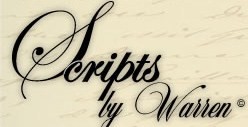The dialogue may be fiction, but we know that these three men were actually aboard this ship together waiting out the attack on Baltimore in 1814. This sketch imagines their conversation leading up to seeing the flag still waving over Fort McHenry.
everything as being providential and the hand of God…KEY: That is correct.SKINNER: That’s interesting.KEY: By that, of course, I do not diminish the talents and skills
that you have in being able to negotiate with the British and
obtaining our joyous victory this day of my friend’s release.BEANES: And none more grateful to those skills than myself.
Eternally grateful Colonel Skinner.SKINNER: Well, I appreciate the kind words. I must say it was
your kindness toward the British soldiers who were injured that
worked in your favor. They did not want to execute such a man who
had been so good to them. Many of them spoke of the “kindly old
doctor”. We had many letters to show to them.BEANES: I had to look past the fact that they were the enemy, and
see them only as human beings who were in need of medical care. I
hate to think that I was able to patch up someone who went back out
and killed one of our men later. Still, I thank you for thinking of
using that as your means to secure my release.
KEY: But I must say… those skills were not altogether of your doing,
as the Almighty is the One who give us the gifts and talents that we
have to accomplish such things.
SKINNER: (Pausing to wonder, then putting it aside he continues)
What church do you attend, Mr. Key?
KEY: The Episcopal Church, John.
SKINNER: You do not seem to be overly distressed with the battle
that is ongoing this night.
KEY: On the contrary, Colonel. I find war and fighting very
distressing. I am opposed to war. It’s “Madison’s War” you know.
SKINNER: But are you not in the Georgetown Light Field Artillery?
KEY: That is correct. And during the Battle of Bladensburg, I
assigned field positions to American troops – a duty I had no
expertise in!
BEANES: A dreadful failure and one which brought about the burning
of the White House, the Capital and so much of our Washington. Not
anything that I enjoy recalling to my memory. These past days have
been a difficult trial indeed. But Francis, you have helped me to
see God’s hand in all of this, and especially in my timely release
for which I am forever grateful to Him and to the two of you.
KEY: I will be glad when this war is over and I can go back to being
a simple lawyer.
BEANES: It has been quiet now for awhile. I wonder if that means
it is over.
KEY: I fear that over could mean another loss and Baltimore will
soon resemble Washington.
SKINNER: (Stepping up on another level where he can look out) I
wish I could see well.
KEY: Can you see the flag? That flag is so huge, that you should
easily see it from this distance.
BEANES: If it is still flying.
SKINNER: (Straining to look) How big is that flag anyway?
BEANES: (Proudly) 30 feet high and 42 feet wide. Maj. Armistead
asked for a flag so big that the British would have no trouble seeing
it from a distance. Last summer he commissioned Mary Young
Pickersgill to sew it. Her and her daughter Caroline made it at a
cost of over $400! (Key is bowed in prayer) Oh, that we might see
it flying still this morning! I’m sure that is what my young friend
is praying for just now.
SKINNER: Wait! The smoke is clearing… and the light of dawn is
breaking through! I think I see colors!
KEY: (Jumping up from prayer and getting up next to Skinner) Yes!
Red! I see red! And white!

Reviews
There are no reviews yet.